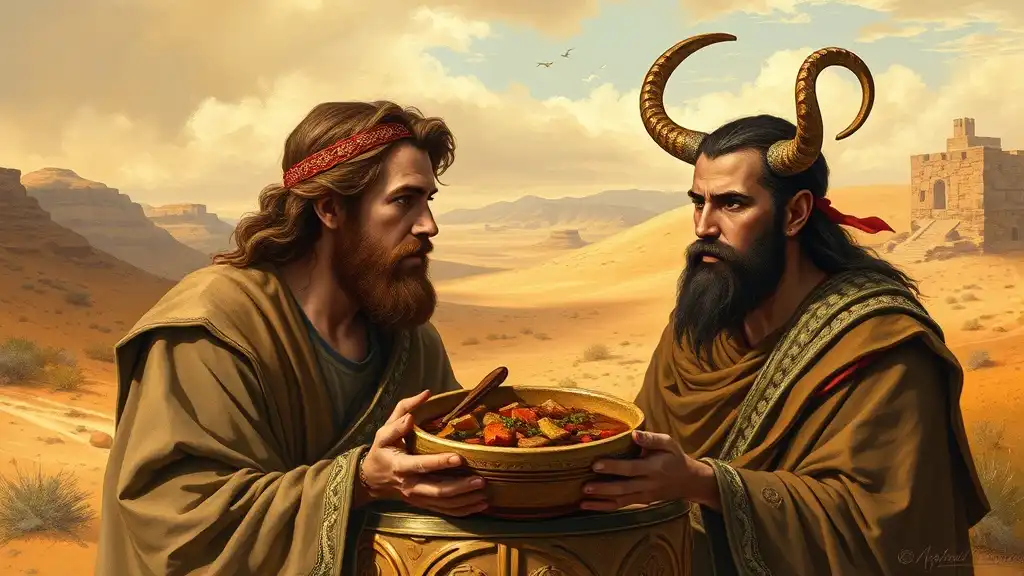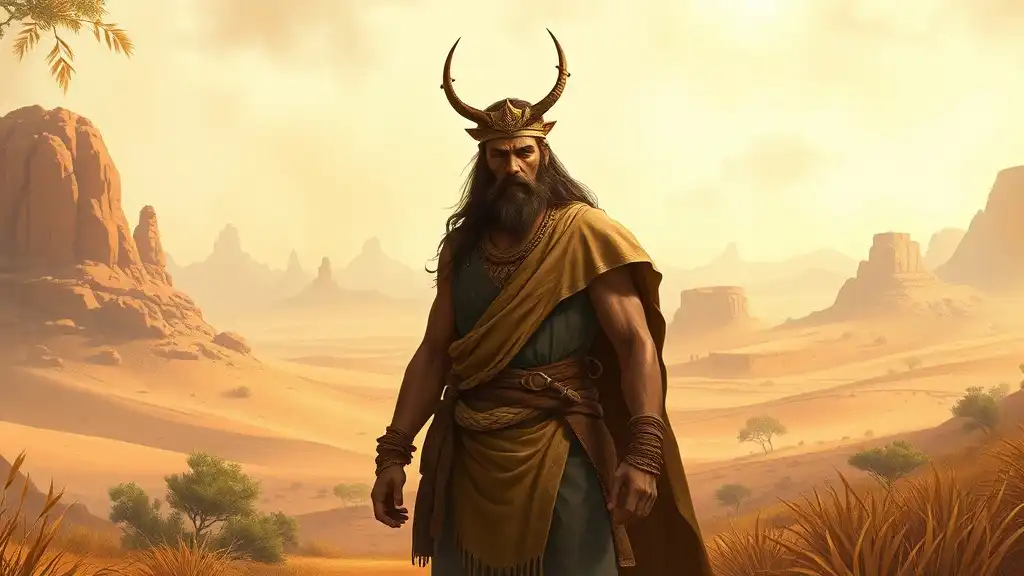Esau, a significant figure in biblical narratives, is often overshadowed by his brother Jacob. However, understanding the spiritual meaning of Esau opens up profound insights into the human experience and our spiritual journeys.
Esau's story, primarily found in the Book of Genesis, highlights themes of family, identity, and personal growth. By diving deeper into Esau's symbolic representation, we uncover essential lessons that resonate with our lives today.
Historical Context of Esau
Esau in the Bible
Esau is introduced as the firstborn son of Isaac and Rebekah, a vital detail that sets the stage for his future conflict with Jacob. The narrative presents Esau as a skilled hunter, embodying physical strength and masculinity. When Jacob offers a meal in exchange for Esau’s birthright, this moment encapsulates a critical transformation—Esau, tired and hungry, prioritizes immediate satisfaction over long-term blessings, showcasing the human tendency to make impulsive decisions based on physical needs.
Cultural Significance
In Jewish tradition, Esau represents a complex character—one who straddles the line between irreverence and sincerity. His presence in scripture is significant, as he embodies the concept of tikkun olam, the idea of repairing the world. In Christian theology, Esau serves as a cautionary tale about the dangers of neglecting one's spiritual inheritance in pursuit of worldly desires.

Symbolism of Esau
Esau as the Archetype
As the firstborn, Esau symbolizes the inherent responsibilities and privileges that come with this title. The duality of his nature—as both a hunter and a provider—demonstrates the conflicting aspects of our identities. He embodies the tension between our primal instincts and higher spiritual aspirations.
Connection to Earthliness
Esau’s character is deeply rooted in the physical realm. His affinity for hunting and outdoor life symbolizes a connection to the Earth and the fundamental aspects of survival. In spiritual practice, grounding is essential; Esau teaches us that embracing our earthly existence, along with its challenges, can lead to profound spiritual insights.

Spiritual Lessons from Esau's Life
The Power of Forgiveness
Their dramatic reconciliation makes the story of Esau and Jacob a powerful lesson in forgiveness. After years of estrangement, Esau’s willingness to forgive Jacob for stealing his blessing highlights the importance of addressing familial rifts. This act of forgiveness is transformative, illustrating that letting go of grudges can lead to healing and deeper connections.
Valuing What Matters
The moment Esau trades his birthright for a bowl of stew serves as a stark reminder of prioritizing what truly matters. His decision leads to lifelong consequences, prompting us to reflect on our own choices. Are we, like Esau, trading long-term spiritual growth for short-term gratification? This lesson emphasizes the importance of valuing our spiritual inheritance and making mindful choices aligned with our true selves.

The Esau-Jacob Dynamic
Rivalry and Spiritual Growth
Esau's rivalry with Jacob is illustrative of the spiritual competition we face within ourselves. It’s a reflection of our inner struggles, as we often contend with opposing forces—our primal urges versus our higher ambitions. Through adversity, we can achieve personal growth and develop resilience. Esau's journey teaches us that conflict can be a catalyst for transformation.
Lessons in Identity
The complexities in Esau’s identity encourage us to explore our own spiritual paths. The tension between his identity and Jacob’s provides a framework for understanding the diverse elements that shape who we are. Embracing every aspect of our heritage—the light and the shadow—ultimately leads to a more whole and authentic self.

Esau in Modern Spirituality
Lessons for Today's World
In a fast-paced world often driven by materialism, Esau reminds us of the importance of authenticity. He challenges us to be true to ourselves while navigating societal expectations. Recognizing the balance between the material and spiritual realms is essential for a fulfilling existence.
Esau as a Guide for Personal Transformation
Incorporating the lessons from Esau into our daily lives can be transformative. Cultivating qualities like resilience and awareness enables us to navigate challenges more gracefully. We can draw inspiration from Esau’s journey of reconciling with his past, inviting us all to engage in personal reflection and healing.

Conclusion
The spiritual significance of Esau is profound, revealing layers of meaning that enrich our understanding of personal growth, identity, and forgiveness. By exploring his story, we are invited to reflect on our own lives and embrace the lessons he offers. The journey through Esau’s narrative teaches us that we too can find balance, authenticity, and healing in our spiritual paths. As we navigate our journeys, let us embrace the teachings of Esau, ensuring that we do not trade our spiritual birthright for momentary pleasures, but instead, cultivate a life of meaning and connection.



















